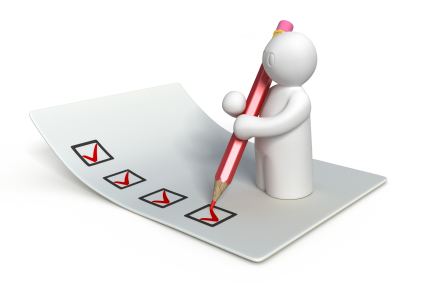I
have to admit that I like being a student. Unlike some librarians I know, I
enjoyed doing my graduate work in library science. In fact, I’ll just come out
and say it: I loved library school!
 |
| Photo CC by msulibrary1 |
And,
because I like learning, I try to stay current in library trends and I’m
constantly looking for resources that can help me learn something new. For
free. On my own time. While lounging on the balcony on a sunny Sydney Sunday.
To
the end, I’ve put together a list of Free
(or almost free) Online Professional Development Resources. Some of them
are from the major library associations, some are from smaller library
organisations, some are a bit off the beaten path, and some are just lists from
other sources.
I’ve
sourced them from my own research but I’ve also relied heavily on my Twitter
friends and on my colleagues from the ili-i listserv (the ALA’s Information Literacy
Instruction listserv). So most of these are resources that your fellow library
colleagues are using!
So
please, have a look, click around, and give them a try! This short list is by
no means exhaustive (I prefer things that I or other people like), so if I’m
missing a resource that you love—or something you use all the time—please add
it in the comment section!
The Majors
No
matter what your personal opinion is regarding the American Library Association,
you have to admit that they’ve put together an impressive array of live
webinars, on-demand webcasts, and online courses. At prices ranging from free
to $28 USD, that’s a bargain! And they cover everything from collection
management and service delivery, to a host of offerings from individual ALA
Units (think school libraries, public libraries, IT, diversity, etc.). If you
haven’t had a look in a while, give it another shot!
While
ALIA does provide some top-quality professional development training, they tend
to be more along the lines of continuing education—in terms of both cost
($100-$400) and duration (up to 6 weeks). If you’re looking for some quick PD
resources, try their PD Postings
(only select availability if you aren’t an ALIA member). Each month, PD Posting
provides a two-page spread of what you should be learning that month—from
webinars to readings to short-term learning projects. If you’re really keen,
join their PD Scheme
and gain Certified Practitioner status.
The Minors
By
minor, I don’t mean unimportant, as Ref Ex clearly demonstrates. Recommended by
a Twitter and ALIA colleague @VaVeros, Ref Ex provides self-paced training to improve reference and information
services skills. It’s great if you’re new to reference work (hello reference
desk!) or you just need a quick refresher.
While
many library schools around the world have some great PD resources, I have to
hand it to Simmons for their quality over quantity. While their resources are
pricey (up to $300), it’s more continuing education than simple PD, as there
are several self-paced, 6-week workshops. However, the presenters are
experienced, well-known American instructors (LJ Movers & Shakers!). I’m
really itching to set aside 6 weeks to do the Instruction Librarian Boot Camp,
or maybe the Developing Content for Online Learning course. I also stumbled
upon their How-to Guides, and I have to say, if you have a burning question about something techy in your
office, have a look. From RSS feeds to basic HTML or from XML to MS Office,
Simmons provides some easy and fun little guides.
Brought
to you by the “trusted experts at the American Library Association,” Booklist
Online provides free webinars about upcoming books across the literary
spectrum. Normally hosted by a Booklist editor, the presenters are from the
publishing industry. If you are in collection development—or in reader’s
advisory—these will keep you updated on the newest book offerings! Have a look
at their extensive Webinar Archive.
The List Makers
Another
great recommendation from an ili-i colleague, life-long learner Margaret Driscoll
provides the PD list to end all lists! Flip through this blog with a seemingly
endless list of PD resources for library professionals from a variety of
organisations, in a variety of formats. Some are free webinars, others are $50
online workshops and a few are $100+ online courses. You’ll want to bookmark or
RSS this one to keep up to date on upcoming low-cost PD.
While
this blog entry is a bit old, the podcasts and audio shows he mentions are
worthwhile to check out. King is the Digital Branch & Services Manager of Topeka
& Shawnee County Public Library—and is well-known in library social media
circles!
And a bit off the beaten path
This
is my current favourite source for “knowledge creation and dissemination in the
digital age.” While not directed solely towards library professionals (it’s
part of the Harvard Law School), the videos and podcasts feature top-notch
researchers who explore online topics that are very important to libraries. I
thoroughly enjoyed "Quality Control," a podcast discussing recent research into how young people can find truth
amidst online garbage, about finding and evaluating quality information online.
An
amazing free resource recommended by an ili-i library colleague, Mantra is a
self-paced course on research data management. Although created for
postgraduate students and early career researchers, library staff in research
settings will find it an invaluable resource for managing data in the social
sciences.
This
ALA provides some exciting live and recorded webinars for professionals in the
Adult and Community Education fields. Although not targeted towards librarians,
this is a personal favourite because it targets the communities I serve as a
User Education Librarian. With a focus on how to teach and engage with adult
learners, ALA highlights some top-notch adult educators with innovative
teaching strategies.
- Jeff
Jeff Cruz
Events Officer, ALIA Sydney Committee
Follow me on Twitter at @jncruz
Disclaimer:
All of the information and views expressed are solely my own, and do not
reflect those of my employer or any other organisation.



